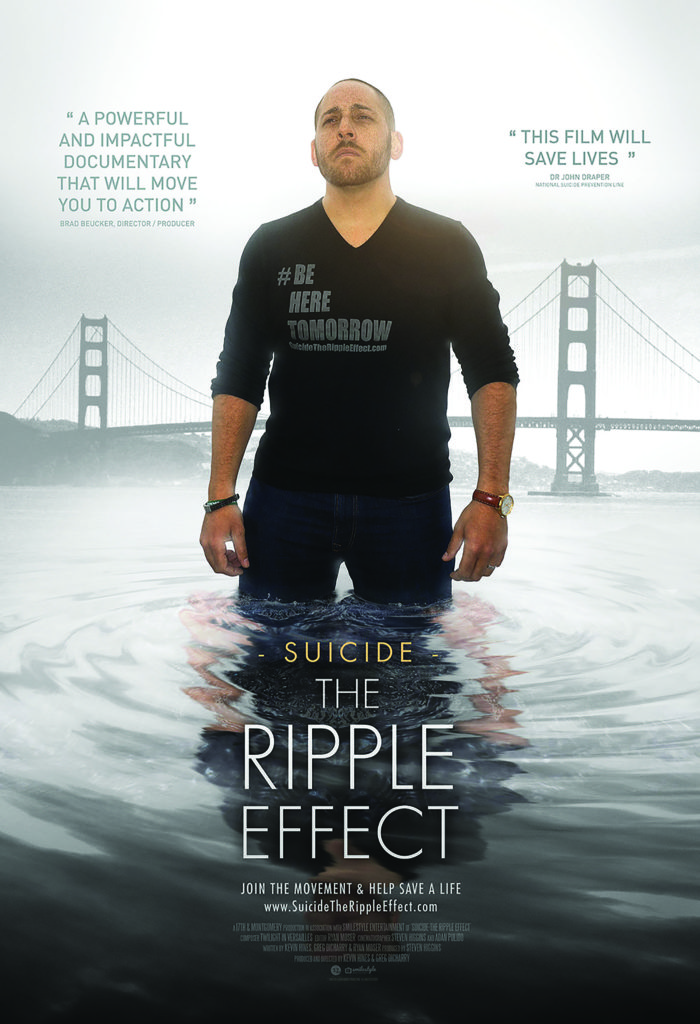
A single, circular, black and white-colored analog clock adorned the off-white wall. Groggy, my eyes strained then refocused. It was 4AM. I had been in limbo overnight waiting for an in-demand, overbooked, cheap wood-framed, rather uncomfortable single bed. It was an early, solemn San Francisco morning: May 1, 2004. I was 23 years young. My father and I had been in the filthy-sock-smelling emergency room overnight.
It wasn’t our first time in this predicament. He waited anxiously near the door of my linoleum-floored, white-walled room. It was the third floor of the locked-down unit within the St. Francis Memorial Hospital Psychiatric Ward. We had been here before, three times in fact. So often that when a moment of levity passed, I referred to it as my exotic hotel stay. Time and again, I had to live in places like these—to equalize, to heal, and to regain a semblance of sanity. You did not misread that: I was in my third psychiatric hospital stay. I would see the inside of a place like this four more times over the course of the next seven years. Why? Well, the answer is not as simple as “I lost my mind” or “I just went nuts.” No, those self-berating descriptions are vague and quite frankly offensive to someone who has suffered mentally like I have, and like I do. The answer is much more complex and quite detailed.
Number 26, I was number 26 of the 34 people who attempted to take their lives by jumping off the Golden Gate Bridge and survived.
Most have never regained full mobility. I have been blessed to regain all mobility and maintain my physical fitness. Others have stayed in silence, keeping their stories to themselves. Many have simply gone on with their lives, and eventually pass on of natural causes. Some have opened up, begun speaking about their experiences, sharing with the public what they can about the perils of suicidal ideation, great suffering and pain. These stories of triumph over adversity are not just important for readers, and followers of the mental health movement (an absolute civil rights movement for this or anytime), but imperative for so many people’s continued survival. In the drab, smelly hospital, focusing—not only on the health of my brain, my body, my metaphorical heart, and searching of the soul—became key.
The idea of achieving total physical, mental, emotional and spiritual health is what got me through from one day to the next. Morphing from the self-loathing, inner critical-thinking creature I had become would not be easy. Soon, I came to the realization that it was entirely possible, maybe even plausible. It would be the most likely outcome. However, this alternate positive and potential reality would only be reachable with a tremendous amount of therapeutic dedication—and most of all, an unhindered, intense drive. The kind of drive that needed to be acted upon minute by taxing minute in order for me to survive and thrive.
I learned to utilize the kind of goal-setting devices needed to build the solid support of a group of personal protectors meant to guide me in times of episodic crisis. This was a group of loved ones, family, and friends who I would request to opt in to my ‘Let’s Keep Kevin Alive’ plan. It is a quick guide to hope and healing, architecturally designed to fit my needs. It was something concrete that could keep me going in rough times, and keep me alive when all I could do is ponder, and plan my death by suicide.
With the help of a Time magazine article on fighting bipolar disorder, depression and all the other symptoms of my disease, I formed a mental health plan. Both for staying on an even keel and for staying here during the worst of times.
MY 10 STEPS FOR STAYING MENTALLY WELL:
1. Therapy. I will use anything that works, from cognitive behavioral, breathing, art, music, to blue wave light-box therapies. All of these help me either stay stable or find a balance.
2. Sleep. Redeveloping a good to great circadian rhythm, a sleeping pattern that allows me to get at least five nights of seven to eight hours of sleep a week. This gives me the rejuvenation my brain needs to function at its highest, and safest, level.
3. Education. This would be the education of my diagnosable mental illness, and the study of the various and most up-to-date, reputable, proven treatments available.
4. Exercise. My motto: If you are physically capable of exercise, it’s simple—move that body. Do the deed not for vanity, but to increase levels of sanity. It has been proven that rigorous activity, and exercise for 23 minutes a day, leads to 12 hours of improved mood.
5. Meditation. Practicing regular daily meditation and focused breathing methods can help the body recuperate from stress. This gives us the ability to keep on keepin’ on.
6. Medication. This one is mainly for those with diagnosed mental health and behavioral health conditions. I take medications every day, around the same time a day. I take them with 100 percent accuracy each day because I understand they help me stabilize and keep off the crooked path.
7. Don’t use drugs or alcohol. I used to binge-drink until blackout drunk while on psychotropic medications. This is something that could have ended in an early death or even damage to parts of my brain. I never have used any other drug other than alcohol. My biological parents had the co-occurring diseases of manic depression (today bipolar disorder) and the serious disease of addiction. For that reason, recreational illicit drugs have always been off the table in my book. If you battle the disease of addiction, I hope this helps you consider seeking professional help to find the tools to help retrain your brain to live without such self-destructiveness.
8. Healthy eating and a clean living lifestyle. Eating foods that directly feed the brain with good nutrition will help you stabilize your overall health.
9. Coping mechanisms. Hobbies, tools, and helpful activities can help you stay grounded when fighting a brain disease. I walk in nature, sketch on sketchpads, read comic books, watch newly released movies, go on date nights with my wife, exercise for fun, and read a lot. All of these activities are my way of coping with my mental battles. When I hallucinate (which I do often enough), I ground myself with one of my coping mechanisms. I grasp my hands left to right, back and forth when I am self-aware enough to know that what I am seeing or hearing may not exist in anyone else’s reality. Those closest to me do not acknowledge that it is real to me, but that they are not experiencing the same things. Over time, with the coping and grounding exercises, I get past the distorted reality and eventually come back to true reality.
10. The Plan. I created my very own mental and brain health emergency plan. The emergency plan has all of my doctors’ and clinicians’ names, phone numbers, email addresses and physical addresses. It also includes descriptions of my symptoms, signs, episode triggers, and more. It contains copies of release forms signed by my personal protectors. These are people who I have opted in to my plan, so that if anyone of them wanted to call one of my doctors at anytime to discuss my treatment plan and/or symptoms, they have the authority to do so. They would be able to get a play-by-play, superseding HIPAA laws; this gives those closest to me the ability to be a part of my change and safety efforts at any given day. Why? The answer is simple: No one with a mental illness, a brain disease, or behavioral health battle can do this alone, and everyone needs help sometimes.
So there it is. This is how I fight to stay all kinds of well. This is how I strive to live with my best brain ever. Hope does help heal.
SuicideTheRippleEffect.com; SuicideTheRippleEffect@gmail.com
If you—or someone you know—need help, please call 1.800.273.8255 for the National Suicide Prevention Lifeline. Or TEXT CNQR to 741-741. If you are outside of the U.S., visit the International Association for Suicide Prevention for a database of international resources. Or go to suicide.org. Follow Kevin Hines on Youtube: Youtube.com/kevinhines, Twitter, Instagram, Facebook: @KevinHinesStory, and go to kevinhinesstory.com for more digital mental health media and content.
Kevin Hines speaks about the art of survival with Dr. Kelly Posner Gerstenhaber on August 14 at Purist’s Connect 4 Ideas Festival at Guild Hall at 12:45PM. Visit here for tickets.




